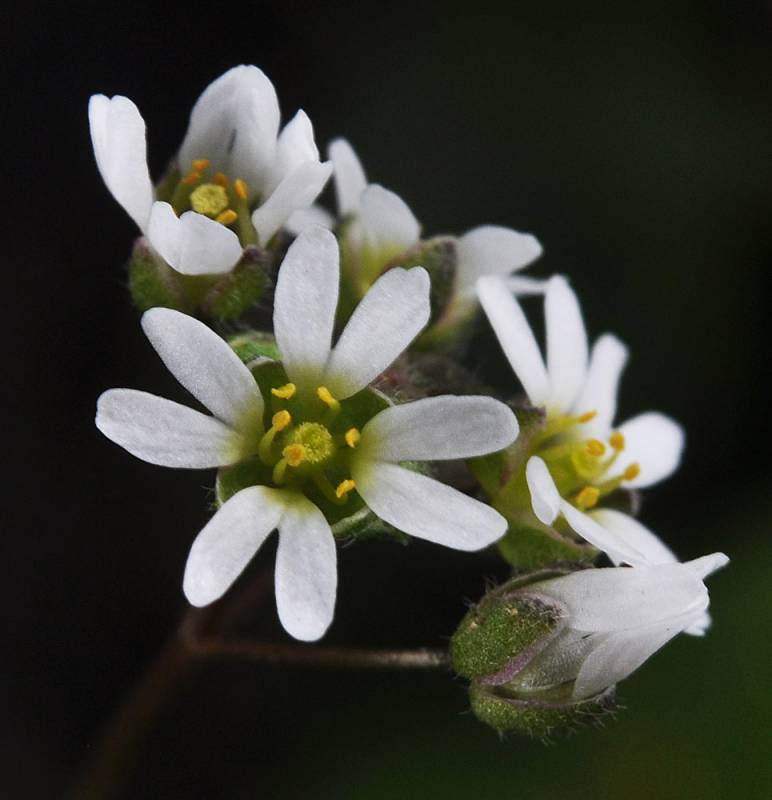Hosted by the University of Washington Herbarium, Burke Museum
Publication: Sp. Pl. 2: 642. 1753.
Origin: Introduced from Europe
Herbarium search: CPNWH
Notes: Autogamy and aneuploidy lead to establishment of many uniform and slightly differing populations, which Rollins (1993b) does not recognize taxonomically.
FNA7: "Draba verna represents a highly variable and taxonomically difficult complex within which species, subspecies, varieties, and forms have been named (O. E. Schulz 1927); only those synonyms pertaining to North America are listed above. Most of the taxonomic difficulties are the results of disploidy, autogamy, and hybridization. The morphological extremes are connected by intermediate forms in every conceivable character. Furthermore, there appears to be no correlation between morphology, cytology, geography, and ecology to support the division of this complex into meaningful taxa. A complex cytological picture was presented by Ø. Winge (1940), including the highest count of 2n = 94, which has not been confirmed by subsequent botanists.
Erophila vulgaris de Candolle is an illegitimate name for Draba verna."
References:
Last updated 1/29/2022 by David Giblin.

